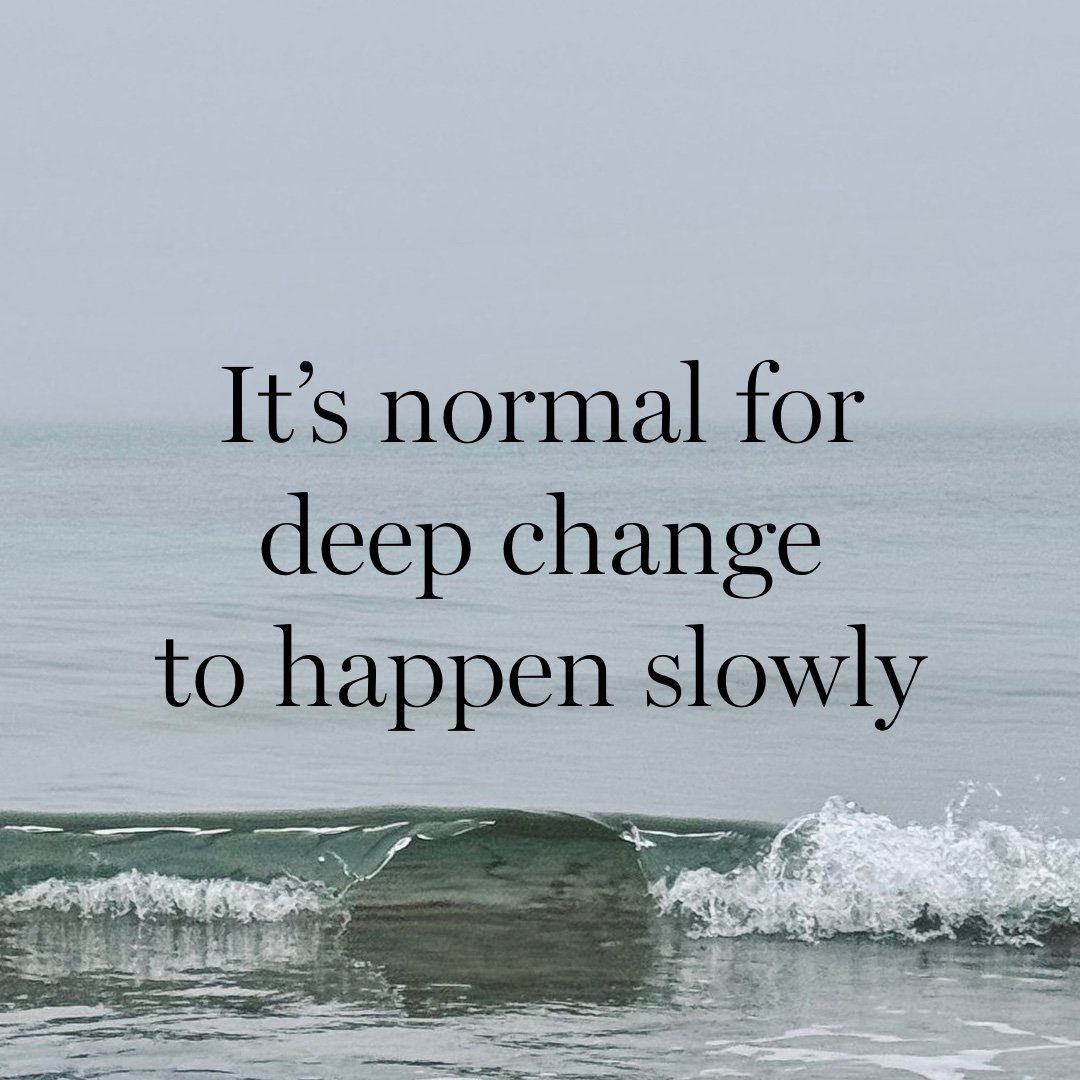It’s normal for deep change to happen slowly
We must accept that profound changes in ourselves and our behaviour take time. It’s completely normal.
There are no quick fixes if we want responsible and sustainable development and transformation in our lives and leadership.
This is why deciding to change your life can sometimes feel cumbersome, confusing, and even risky – yet it can also become one of the most rewarding periods of your life if you embrace it.
A few years ago, within 24 hours I had to decide whether I wanted to continue leading an IT area that I had built and developed over more than 10 years. The fundamental conditions shifted radically, and I assessed that it wasn’t right for me. Trusting the strong relationships around me, I took a leap that felt like a long jump from a 10-metre platform in slow motion – floating into the unknown without any idea where it would end up.
I enrolled in a postgraduate course in design and innovation management, and began shaping the future IT strategy for HR at Danske Bank. Today I know that it was the starting signal for a deeper change in my life – more creativity and empathy in my daily work – and it still ties in with my role as an independent coach for those who take responsibility. However, it came about through gradual influence, experimentation, and realisations.
Why does change take time???
Learning and change are biological processes, not merely an intellectual shift in mindset. Short and sweet…
Our way of understanding the world – our language and thoughts – is deeply connected to our nervous system and body. All our actions arise from a readiness that we have learned over time: what we listen for, how we interact socially, our posture, and our physical dynamics.
Fundamentally, our body is incredibly efficient – through experiential learning, the brain, nervous system, and muscles are trained and adjusted to secure the organism’s survival as quickly and efficiently as possible, using as little energy as necessary.
The clever part is that this can change – it’s plastic. So when our environment and context shift, and we need to change ourselves, it becomes a matter of adjusting and completely shifting our ‘setting’.
Biologist Maturana showed how a suitable and persistent ‘disturbance’ to our nervous system and what we observe helps us gradually shift our entire system physically. And we share this with many other mammals!
Otto Scharmer’s U Theory touches on a similar idea. Change starts by letting go of the ‘daily download of standard routines’ and beginning to observe what happens around us, releasing old patterns, being open to new ways of being, being more present, and trying out new approaches. All of this naturally unfolds over a longer period.
What might we need to stop doing?
With this holistic understanding, the question arises: does a leadership course of, say, 2 days really have any significant effect? Or your off-site?
It might provide inspiration on the spot (and great social interaction) – but does it have any lasting impact on the leadership culture in your organisation?
What can we do instead?
I have no doubt that longer development programmes are most effective if we want better leadership. We need to create the space and room for the transformation of leadership and behaviour that we require, recognising how people learn and change.
Perhaps there should be room for practical experimentation along the way. A regular routine of self-reflection?
As a coach for leaders, I offer longer programmes – for example, based on six in-depth conversations where we take the time needed to gain value and insight. Between each in-depth conversation, we hold a shorter check-in to discuss how things are going in practice. Adapted to the individual leader’s context and needs, this can run for 7–12 months, precisely to create space for learning, experimentation, and realisation between sessions.
You can read more about this here: ht
PS: You might be thinking that change sometimes happen instantly. Well, perhaps – I’m not a scientific expert in this field – but it tends to occur when something very shocking and sudden strikes us. Such change can come with the risk of post-traumatic symptoms. Here, our focus is on healthy and natural, sustainable development! :-)
Prototyping an Event – What Should It Be About?
I have an idea of helping more people unlock their potential through events, which I will be hosting. But what should the theme be if you were interested in participating?
The format could involve me sharing insights on personal development, set within a specific context. Along the way, I would invite participants to engage in personal reflection and gain new insights, with the hope that you leave with fresh perspectives and actionable ideas on what matters most to you.
After the event, I will offer a follow-up conversation with each participant to review the benefits and support further action.
You can give your input on the theme for my first event! It is still in a prototype stage – serious content and secure facilitation, but with room for adjustments and feedback.
Head over to my poll on LinkedIn and cast your vote here.
And here are a few elaborations on each option:
Roadblocks in your life and leadership – when things don’t go as expected; how do you create clarity to be able to act?
“Overwhelmed by the future” – many are currently struck by too many wild things at once. How can we find our footing and direction?
Transformation in our lives – ending the familiar without knowing what the future holds. Navigating the void. Finding the way forward.
The difficult conversations – why do we avoid them? Insights into the reasons and the courage to act.
If you have any other ideas – or perhaps thoughts about the format, location, or anything else – please feel free to leave a comment or send me a private message!

